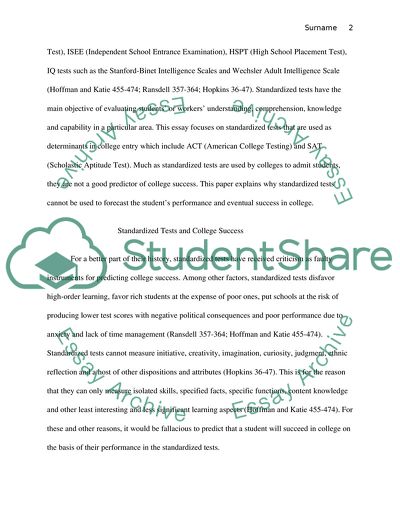Cite this document
(“Standardized Tests Are Not a Good Predictor of College Success Research Paper”, n.d.)
Standardized Tests Are Not a Good Predictor of College Success Research Paper. Retrieved from https://studentshare.org/education/1741675-whether-or-not-standardized-tests-are-a-good-predictor-of-college-success
Standardized Tests Are Not a Good Predictor of College Success Research Paper. Retrieved from https://studentshare.org/education/1741675-whether-or-not-standardized-tests-are-a-good-predictor-of-college-success
(Standardized Tests Are Not a Good Predictor of College Success Research Paper)
Standardized Tests Are Not a Good Predictor of College Success Research Paper. https://studentshare.org/education/1741675-whether-or-not-standardized-tests-are-a-good-predictor-of-college-success.
Standardized Tests Are Not a Good Predictor of College Success Research Paper. https://studentshare.org/education/1741675-whether-or-not-standardized-tests-are-a-good-predictor-of-college-success.
“Standardized Tests Are Not a Good Predictor of College Success Research Paper”, n.d. https://studentshare.org/education/1741675-whether-or-not-standardized-tests-are-a-good-predictor-of-college-success.


